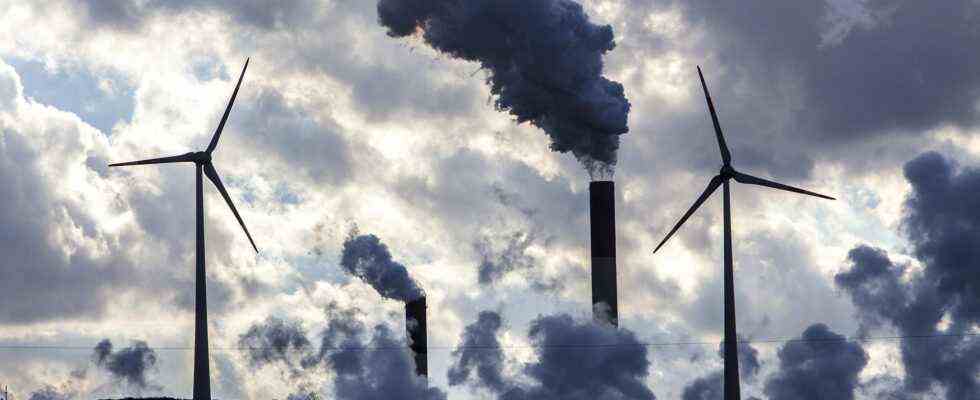Status: 10/6/2021 4:44 p.m.
By 2023, the price of electricity could rise from currently just under 32 to 37 cents per kilowatt hour. This is shown by exclusive research by Plus minus. According to experts, this is mainly due to the slow expansion of renewable energies.
“The development of the electricity price is catastrophic and that was foreseeable,” says Henrik Follmann. The managing director of Follmann Chemie GmbH is pissed off. It stands in one of its mighty production halls in Minden, Westphalia. Adhesives and paints for industry are produced here in huge bowls. The company employs 800 people and generates annual sales of 200 million euros. The price of electricity is becoming more and more of a problem.
“We are already not competitive,” says Follmann. “My customers are based in Poland, based in France – and they then buy from competitors who are based abroad who do not have the insane costs.” According to the Federal Association of Energy and Water Management (BDEW), household customers in Germany paid 31.94 cents per kilowatt hour of electricity in June – based on an average household consumption of 3500 kilowatt hours per year. That is a record in Europe. For industrial customers with their much higher consumption, the kilowatt hour of electricity in June cost 19.09 cents according to BDEW.
Slow expansion of renewables
The price increase is directly related to the hesitant expansion of renewable energies, explains Jürgen Karl from the University of Nuremberg-Erlangen. Because in order to guarantee security of supply in Germany, conventional fossil-fuel power plants have to compensate for the supply gap if there is insufficient green electricity. “As long as we can provide so little renewable energy, it is simply the case that expensive gas-fired power plants, even oil-fired power plants, increasingly have to be used,” says Karl. “The more often we have to use these expensive gas-fired power plants, the more expensive the electricity price.”
The weather is also contributing significantly to the price increase, adds Karl. There was a little less wind than at the same time last year. “This little bit is expressed by the fact that the electricity price has now increased fivefold from the second quarter of 2020 to the third quarter of 2021.”
The fact that the expansion of renewables is progressing too slowly has been ignored for years by the federal government – experts agree on this assessment. This development has consequences for the electricity price of the future. The expansion of wind power on land has almost come to a standstill due to distance regulations, for example. In addition, approval procedures that have been going on for years are delaying the expansion considerably.
Experts anticipate a significant power shortage in 2030
At the renowned research institute Jülich near Aachen, energy expert Detlef Stolten has exclusively for Plus minus calculates the green electricity generation of the future. In his model, the scientist assumes that by 2030 half of all households will replace their devices and lighting with energy-saving devices.
He believes it is very likely that Germany will be able to build on as much each year until 2030 as the historical average of the past ten years. Even then, however, there would still be a green electricity gap of 60 terawatt hours. That in turn corresponds to ten percent of the electricity demand in 2030.
Stolten warns: “You cannot have a ‘business as usual’ concept and say we will continue like this – then we will run into a large gap in electricity coverage. There must be a clear jolt through Germany!” Because if as little solar and wind power is expanded as in previous years, the electricity gap will be even greater at 139 terawatt hours – this corresponds to a fifth of the electricity demand in 2030.
Expect price explosion
Of course the lights will not go out in Germany – this is important to Stolten to emphasize. In the case of the supply gap, the only solution would then be that Germany would buy the missing electricity from other countries such as the Czech Republic or France. In order to avoid impending supply bottlenecks, the four network operators in Germany keep so-called reserve power plants operational, which are mostly operated with gas, coal or even oil. If these power plants have to be started up, this will primarily drive up the electricity price in the future.
Jürgen Karl from the University of Nuremberg-Erlangen is certain that a green electricity shortage in the future will be reflected in the price. “There will not only be a price explosion on the energy market, but this price explosion will affect all areas of life. So it will definitely not be cheaper.” Karl expects that the price of electricity for household customers will rise to around 37 cents per kilowatt hour by 2023 – that would be around five cents more than currently.
You can see more on this topic tonight in the program “Plusminus” at 9.45 pm on Das Erste.

